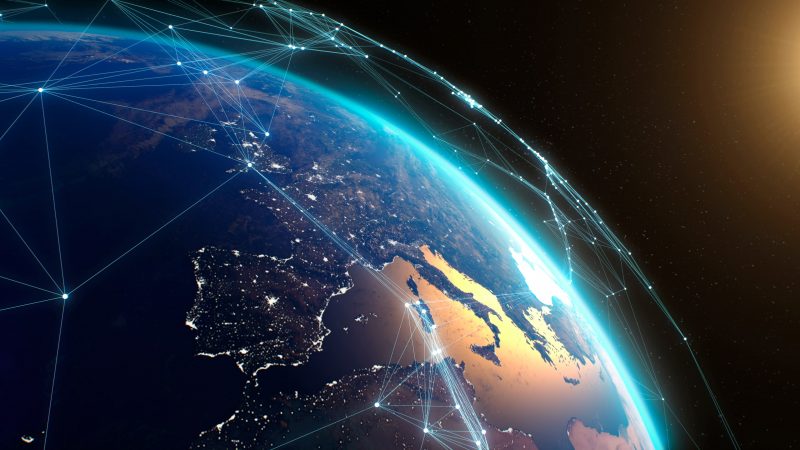Doubts grow over IRIS² scheme
May 7, 2024

Last week Germany expressed in no uncertain terms its unhappiness over the EU-backed IRIS² Low Earth Orbiting system which would give Europe’s governments a secure, encrypted satellite fleet and an alternate to Elon Musk’s Starlink broadband system. (IRIS² Infrastructure for Resilience, Interconnectivity and Security by Satellite).
The German government strongly opposes IRIS² due to its alleged “exorbitant” cost, and criticises the proposed private sector involvement as immature and demanding an overhaul of the whole scheme and that the ‘private’ tender to build the system be relaunched.
Germany’s Economy Minister Robert Habeck wrote in March (but the letter was leaked last week) to EU Commissioner for the Internal Market, Thierry Breton, and complains about the “exorbitant” costs of the project. The trigger is the estimated price, which is now claimed to be almost €12 billion, a full 40 per cent more than initially planned.
“There is too much at stake to hastily make decisions with high risk and massive negative consequences for IRIS² and the EU space programme,” the Minister stated.
The process of involving the European economy is “half-baked” he argued.
The whole process – with or without Germany’s involvement – is already well behind schedule. The ‘private’ part of the project has come together in the shape of the ‘SpaceRise’ consortium comprising Europe’s main satellite players (SES, Eutelsat and Hispasat) and the likes of Thales and Airbus as contractors.
The original plan, as published in March last year, talked of 2023 and 2024 as being the period for development and validation of the scheme (nothing much of which has happened) and for “initial services” to start at the end of 2024 and deployment as satellites became available throughout 2025 and 2026 and with “full services” in place by the end of 2027. Indeed, the original plan called for “Future generational incremental upgrades” to start in 2028.
The latest excuse is that June’s European elections mean that a new suite of European Commissioners will not be in place until September and unable to approve until then..
Habeck’s letter has raised France’s hackles, and Christophe Grudler, a French member of the European Parliament and the rapporteur for IRIS² — and who guided the proposal through the Parliament’s initial inquiry and early development — said Habeck’s remarks were “inappropriate.”
Europe via the 22-nation European Space Agency has allocated some €3 billion to kick start the project, and this was once thought to represent around half of the project’s overall costs.
There’s one other element influencing the project and it is the recent SES commitment to buy arch-rival Intelsat. SES’s mPOWER medium Earth orbiting satellites were always seen as being a key portion of the overall scheme. Eutelsat’s OneWeb, which is already fully orbiting its low Earth fleet of 600 satellites, was another.
Last week SES CEO Adel Al-Saleh diplomatically said SES still remained supportive of IRIS² but implied that the European scheme was no longer quite as compelling for the SES available investment cash as it was a year ago.
On May 8th, the Commission is expecting another “best and final” offer to come from the SpaceRise consortium as to how the scheme can be achieved and financed.
Other posts by Chris Forrester:
- Intelsat C-band ‘insider trading’ case dismissed
- UK Space Agency funds de-orbit scheme for OneWeb
- AST SpaceMobile to launch satellites in August
- SpaceRISE silent on reports of demise
- Project Kuiper seeks India licence
- FAA suspends SpaceX launches
- SpaceX vs AST SpaceMobile
- Eumetsat explains Ariane 6 cancellation
- AST SpaceMobile examines emergency call obligations
